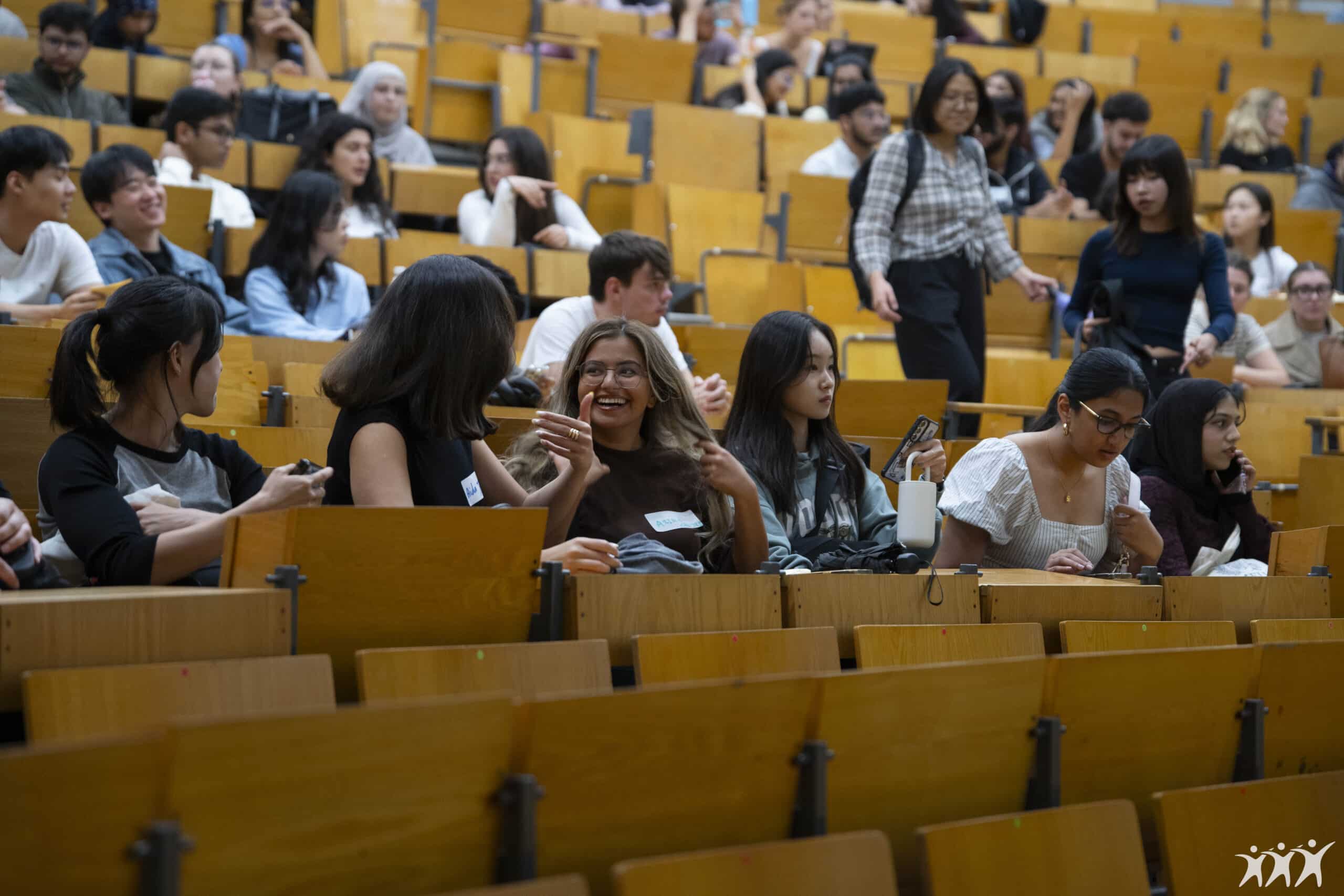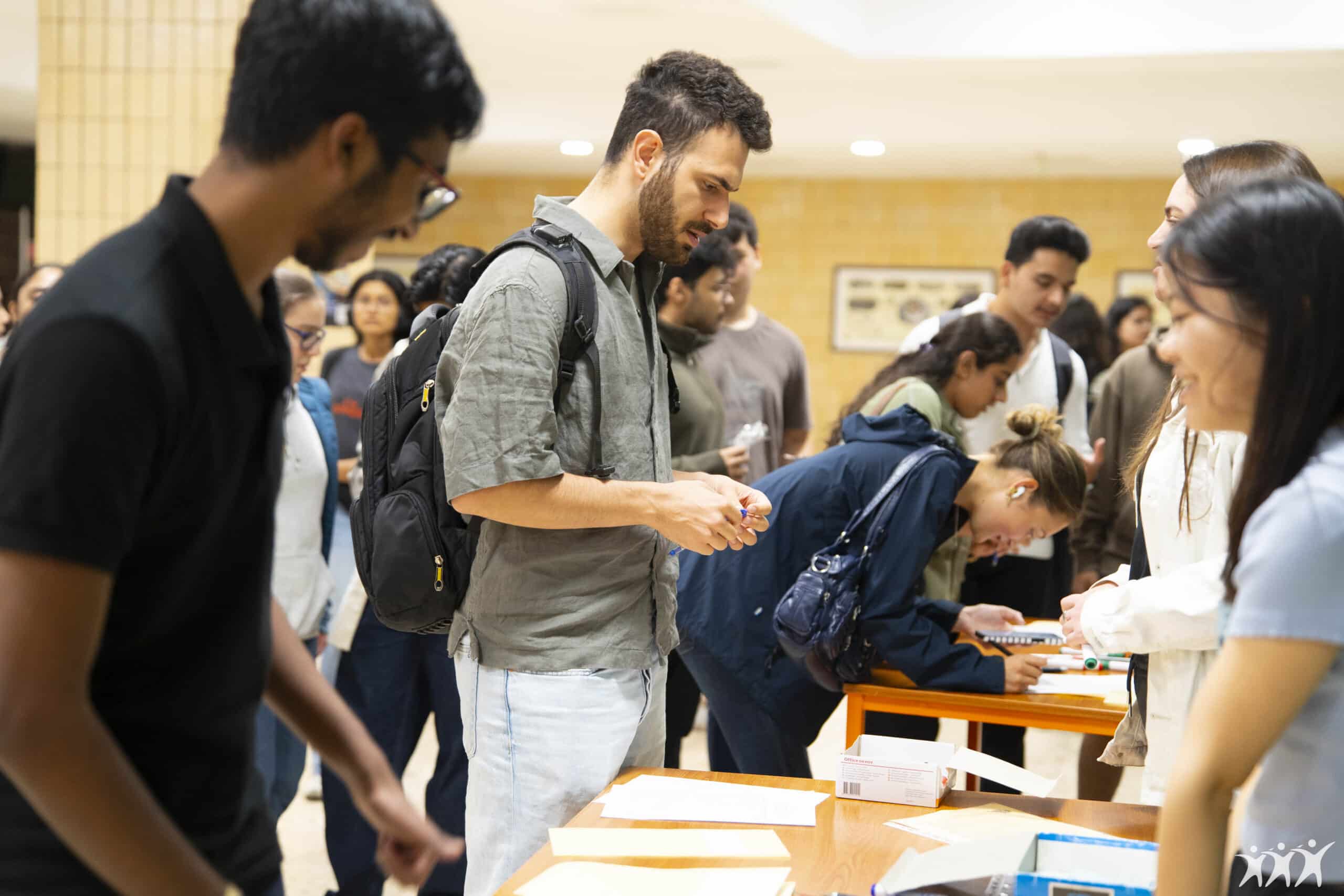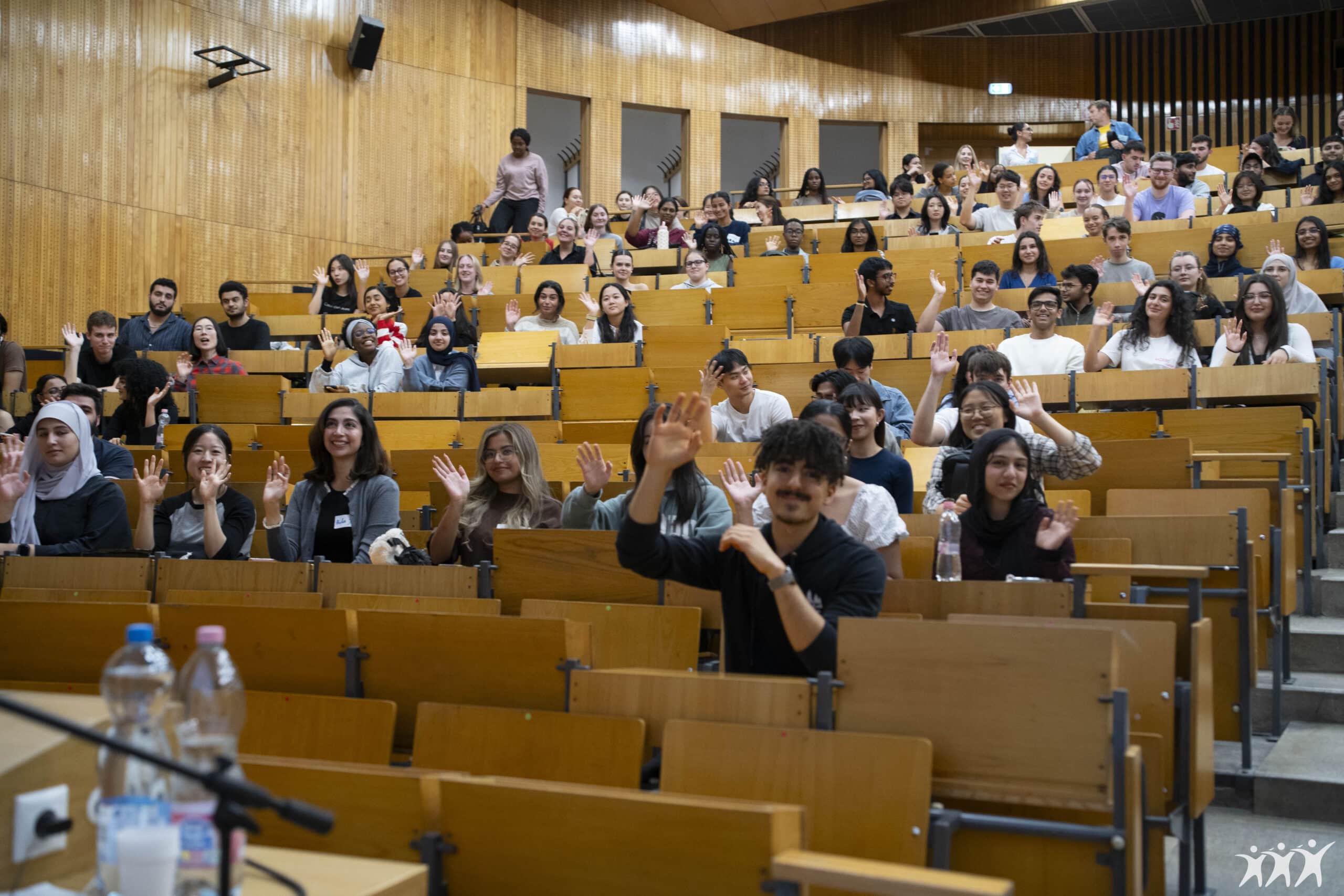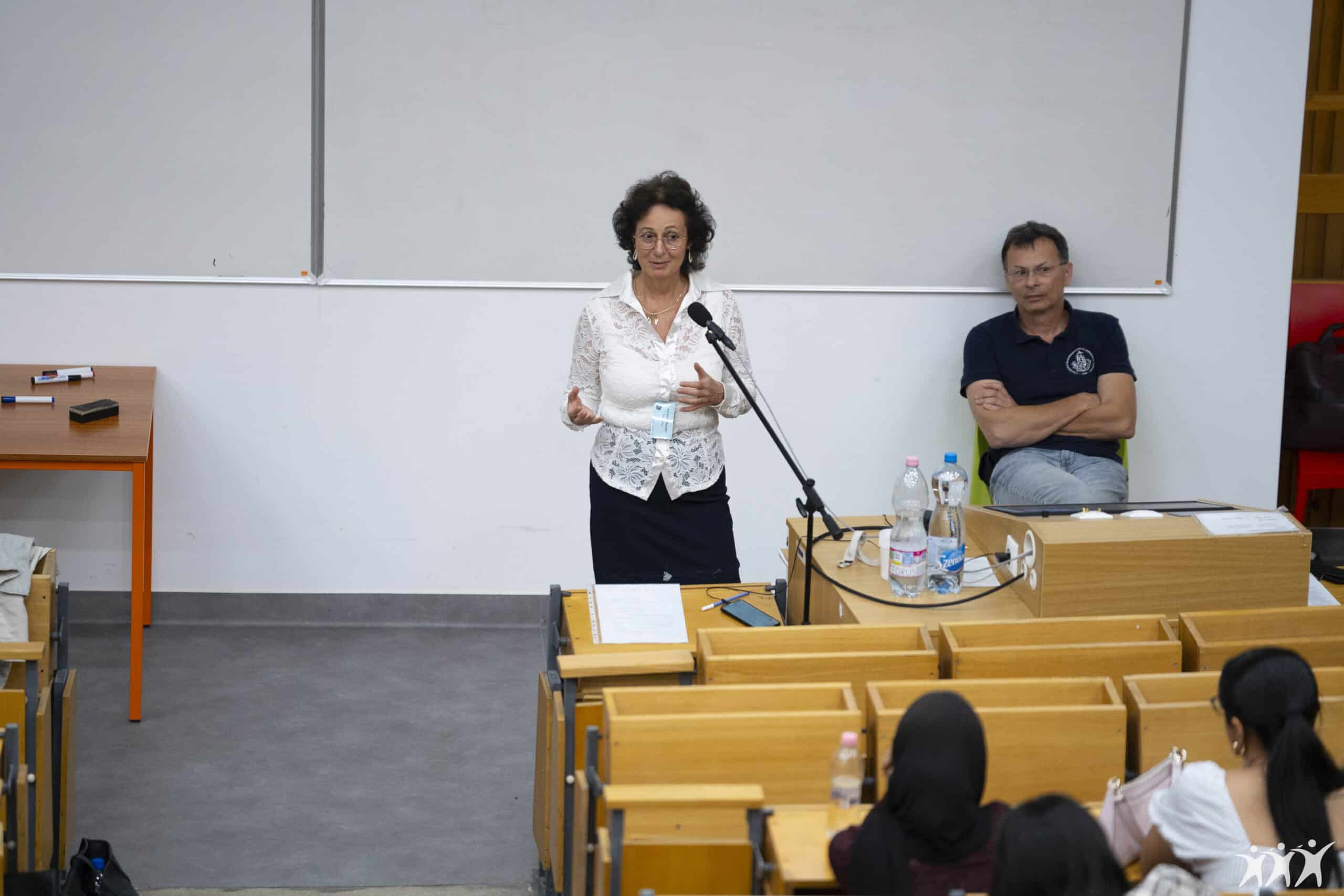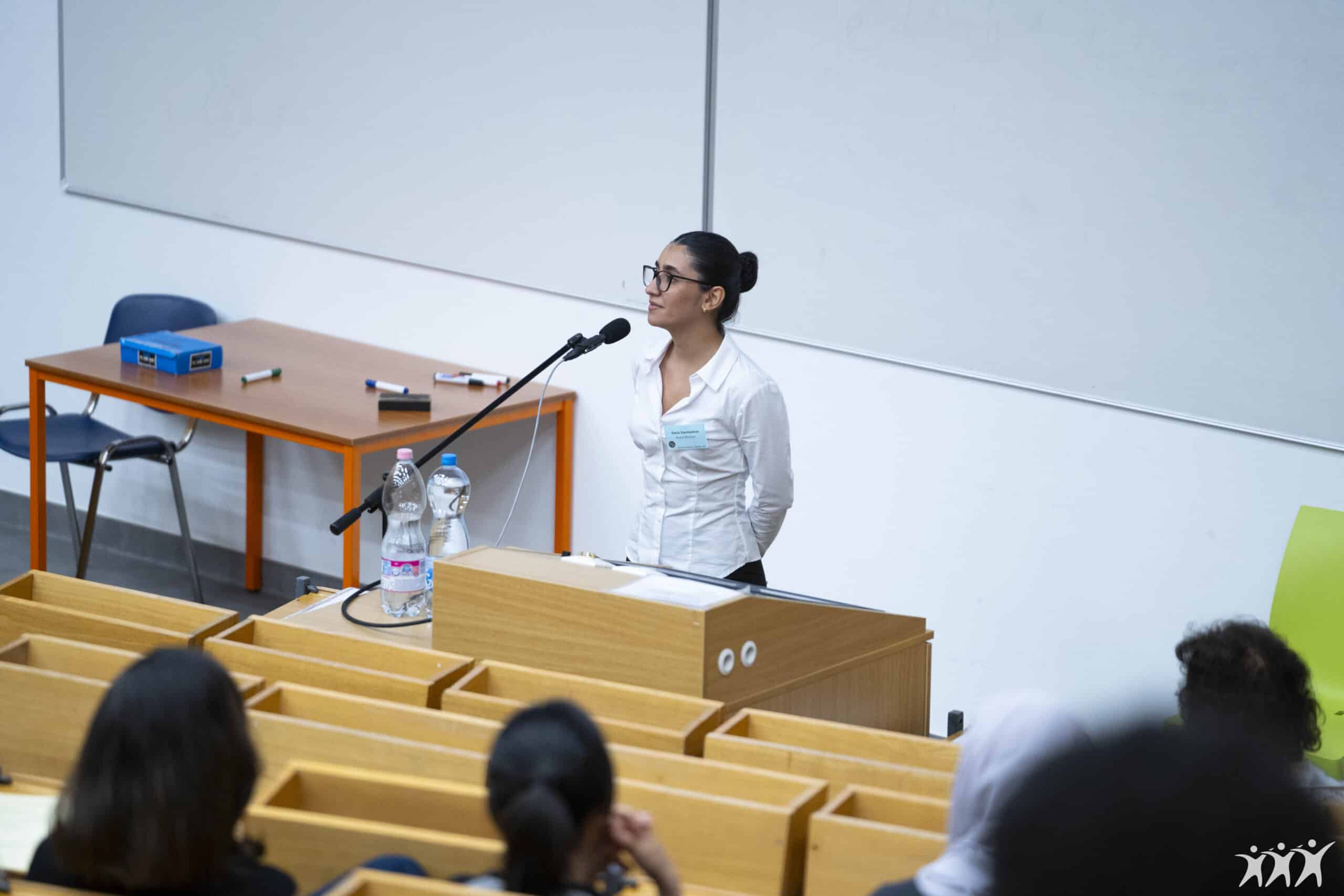After a busy summer of recruitment and pairing mentors with mentees, the Semmelweis International Mentoring Program (IMP) officially opened the 2025/2026 academic year on September 24th with a welcoming ceremony held at the Nagyvárad Square Theoretical Block (NET). The event brought together both the International and German divisions, marking the third year of the program’s continuous growth and development.
The evening began with an inspiring address by Dr. Adrienne Stauder, leader of the International Mentoring Program, who warmly welcomed the students to the new academic year. She was followed by Dr. György Purebl, Director of the Institute of Behavioral Sciences and Vice-Dean of Academic Affairs, who spoke about the significance of mentorship in medical education. Dr. Purebl compared the journey through medical school to navigating the open sea: while the waters are sometimes calm, storms are inevitable. In his metaphor, students are the ships, and mentors are the captains who help guide them through turbulent waters, ensuring they remain steady and on course.
The Semmelweis International Mentoring Program was established to support international first-year medical students as they transition into university life, offering a strong sense of community and resources to promote both academic success and personal well-being. This year, a total of 262 mentees from over 50 co
untries have been matched with 114 mentors. Of these, 180 mentees and 87 mentors are part of the English program, while the German program includes 82 mentees and 27 mentors. All mentors are third-year or higher medical students who volunteer their time to provide guidance and support, helping mentees navigate the challenges of studying medicine abroad, from adapting to academic demands to adjusting to life in a new country.
The German program was represented by Supervisor Júlia Kupcsik and German Board Member Sara Molnár, who together welcomed participants with opening remarks in German. This was followed by the international board members, Sania Zoorbakhsh, Ekshwanku Mehmi, and Victoria Azarov, who greeted the students and outlined the expectations and goals of the program. Victoria also spoke about the mentor-mentee relationship, describing it as a precious gift for both sides and emphasizing the importance of mutual respect and appreciation, which are central to creating meaningful and lasting mentorship connections.
During the event, Ririka Tamura introduced a new collaboration between the mentoring program and the International Semmelweis Student Association (ISSA): a peer-led support group initiative open to all Semmelweis students. These groups will be facilitated by trained senior mentors and held under the professional supervision of psychologists Mónika Ditta Tóth and Gabriella Márta Pintér, providing a safe and supportive space for students to share challenges and develop coping strategies.
A highlight of this year’s updates was the introduction of fixed supervision groups for mentors. These groups will be led by dedicated program supervisors Dr. Kevin Babayigit, Dr. Dorottya Árva, Bence Döbrössy, Dr. Imre Szebik, and Dr. Adrienne Stauder, with assistance from teaching assistants Ririka Tamura, Yoanna Cohen, Arian Tarahomi and Yashika Malik. The new structure is designed to strengthen the mentor community and ensure consistent support throughout the year. Furthermore, starting this year, supervision opportunities will also be offered to mentees, providing them with additional guidance and a safe space to reflect on their experiences and challenges during their first year of medical school.
The official program concluded with the presentation of two special awards recognizing outstanding contributions to the program. The Outstanding Contribution Award was presented to Dr. Eden Friedman, Dr. Kevin Babayigit, Dr. Alexandra Pop, and Dr. Márk Havasi for their pivotal roles in shaping the program’s growth and long-term development. The Service Award was awarded to Joschua Weber and Vivienne Seymour in recognition of their exceptional dedication and service during the previous year.
Following the formal ceremony, mentors and mentees gathered in smaller groups for informal conversations and ice-breaker activities with their assigned supervisors and teaching assistants. This relaxed setting encouraged personal connections and set the tone for a year of collaboration, growth, and mutual support.
As the evening drew to a close, the rooms buzzed with excitement and a shared sense of purpose. The connections formed during this opening event will continue to grow throughout the year, fostering a supportive and diverse community. With this promising start, the Semmelweis International Mentoring Program begins a new chapter, one dedicated to strengthening collaboration and providing meaningful guidance as students navigate the challenges and opportunities of their medical journey.
